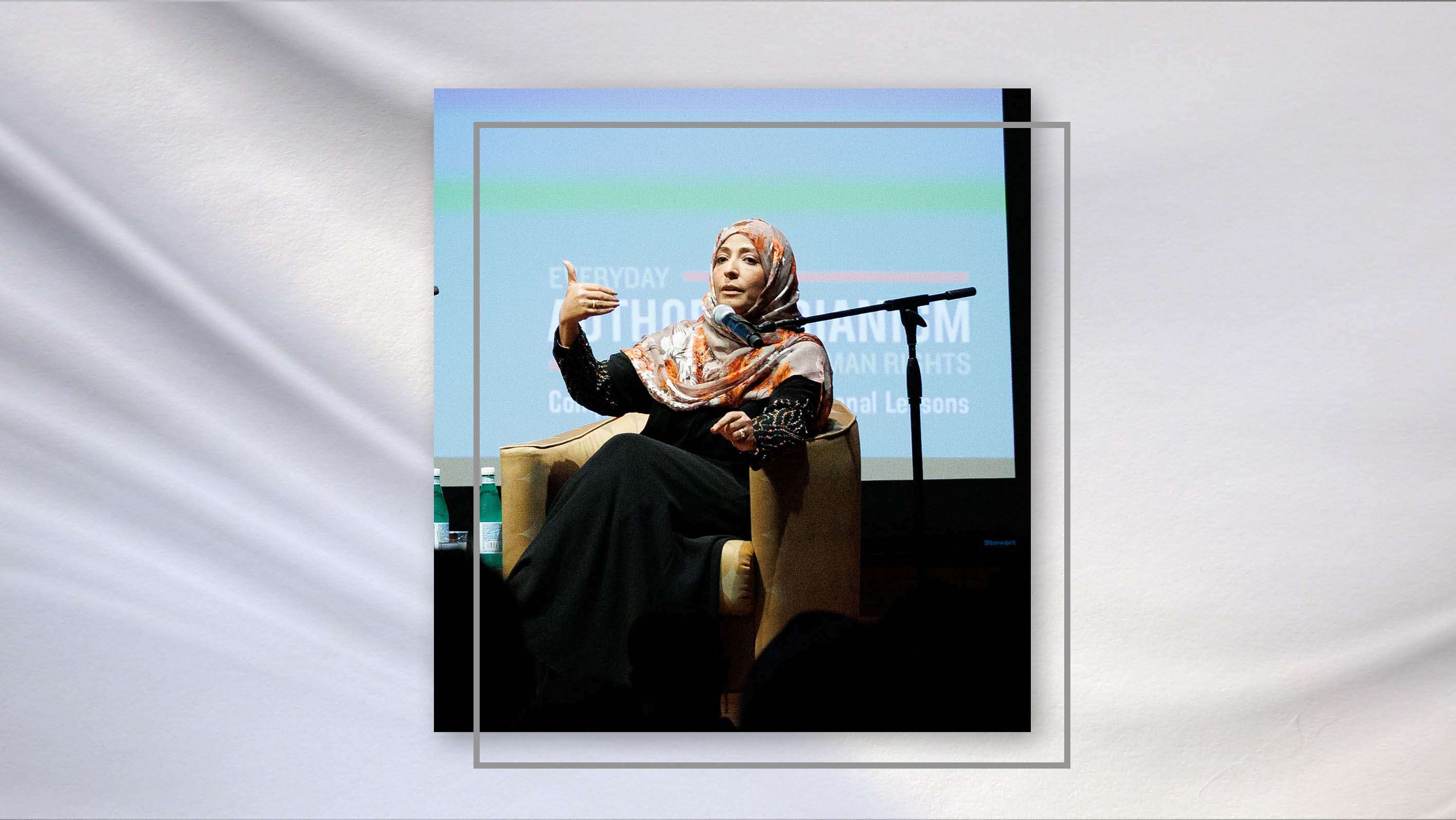
Tawakkol Karman speech on Authoritarianism and Human Rights: Comparative and Transnational Lessons - New York
Good afternoon, and thank you for the honor of joining this important panel.
I come here not as an observer, but as someone who has lived the consequences of repression and violence. In my country, Yemen, and across the Middle East and Africa, I have seen how dictatorships, militias, and occupying powers work to silence voices, distort truth, and erase dignity. But I have also seen something more powerful: the resilience of people who refuse to be silenced, the courage of journalists who continue reporting, and the determination of movements that keep building, even in the darkest of times.
Repression thrives on lies. Authoritarian regimes know they cannot win by truth, so they weaponize propaganda, misinformation, and violence. How do we fight back? By telling the truth—fearlessly and relentlessly.
Every time an activist documents a crime, every time a journalist publishes a forbidden story, every time a citizen shares a testimony online, they weaken the grip of authoritarianism. The truth has a power dictators cannot fully destroy.
And when regimes silence voices inside a country, solidarity outside becomes essential. International networks amplify the truth, making it harder for dictators to bury it. This is how repression is defeated—not by one voice, but by many, echoing across borders.
Here we we should talk about: of a crime that will never be erased from humanity’s memory: the targeting and killing of journalists in Gaza — those who carried the camera and the pen to bear witness to the truth, and became the target themselves.
They paid with their lives because they reported, documented, and carried the voices of the victims. The result was horrific: nearly 250 journalists deliberately assassinated in a systematic policy aimed at erasing evidence, altering the narrative, and terrorizing those who remain to tell the truth.
In Gaza, journalists were killed because the truth frightens the killers more than bullets. Targeting them is not only a crime against individuals, but against truth itself — against memory, justice, and the people’s right to know. Killing a journalist means killing testimony and opening the door to impunity.
But their blood will not silence the word; it will make it louder. Our responsibility is to demand their protection and insist on holding their killers accountable — so that truth remains stronger than bullets, and the word remains free no matter how fierce the oppression.
We are living in a time when women’s rights, reproductive rights, political freedoms, and even basic legal protections are being rolled back. But solidarity is not charity—it is shared struggle.
Real solidarity means:
• Centering women and marginalized voices in leadership roles.
• Building alliances across movements—for democracy, for climate justice, for refugees, for workers’ rights—because our struggles are interconnected.
• Applying sustained international pressure, not just statements of concern when repression peaks, but long-term commitment to empower those on the ground.
Solidarity is not symbolic. It is practical, organized, and persistent.
Journalists today are under attack, universities are censored, NGOs are criminalized. What is to be done?
Journalists must see themselves not only as reporters, but as defenders of civic space. Universities must protect critical thought, even when governments and donors pressure them to stay silent. NGOs must be bold, not cautious, in their defense of rights.
This requires institutional courage. Courage to refuse censorship, courage to take risks, courage to defend freedom of expression as the cornerstone of democracy. When knowledge, media, and civil society stand with activists, authoritarian regimes lose their power to control the narrative.
History reminds us of two great lessons:
First, repression never lasts forever. Dictators fall, walls collapse, occupations end. But freedom requires persistence.
Second, movements succeed when they combine moral vision with collective action. From the anti-apartheid struggle in South Africa, to the civil rights movement in the United States, to the Arab Spring in the Middle East, people proved that when dignity becomes a shared cause, even the most entrenched regimes cannot stop them.
Our generation must learn from those before us: hope and resistance must go hand in hand.
Many ask: how do you keep hope when facing threats, smear campaigns, or surveillance?
For me, hope is not a luxury—it is survival. I know that our cause—freedom, dignity, justice—is greater than the weapons of dictators. I have lost friends and colleagues. I have faced intimidation, harassment, and exile. But never once did I believe tyranny would last forever.
And my greatest source of hope is young people. Every time I meet a student, a refugee, a young woman leading a protest, I am reminded that courage is contagious. That is how movements endure—through generations who refuse despair.
Friends, our duty is not only to resist repression, but also to reimagine a just and peaceful future. Dictators may control today, but tomorrow belongs to those who fight for freedom.
And the lesson we must carry from this panel is clear: repression thrives on silence and isolation, but movements thrive on truth and solidarity.
Thank you.
